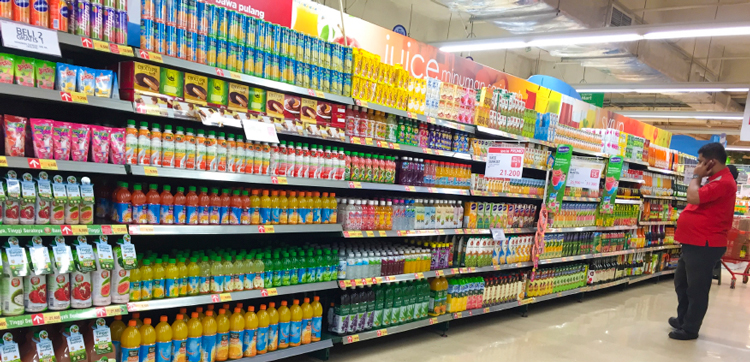Access to Indonesia for New Zealand’s food and beverage exporters is a tricky beast.
Most of New Zealand’s F&B goods benefit from duty free access under the ASEAN-Australia-New Zealand Free Trade Agreement (AANZFTA). This FTA is a huge advantage when it comes to competitiveness in a price sensitive market, like Indonesia.
Unfortunately, few F&B exporters have been able to take advantage of the FTA due to the myriad of non-tariff barriers that must be overcome in order to gain access and distribution.
Restrictions in the form of import quotas on sensitive categories such as wine, dairy and beef are particular nuisances.
Indonesia’s trade barriers towards New Zealand beef imports were at the top of the agenda during Prime Minister John Key’s visit to the archipelago in July. Happily, it would seem Key achieved a breakthrough with this issue during his high profile meeting with Indonesia’s President Joko Widodo “Jokowi” on 18 July and we can expect to see access to this lucrative sector open up once again.
“The Jokowi Government recognises the systemic challenges that businesses face in Indonesia and is working hard to improve its regulatory systems.”
There is obvious demand for imported F&B goods from Indonesian consumers. Having lived and worked in Indonesia for the past five years I have seen the F&B sector blossom, particularly in the food service channel where a plethora of new restaurants and cafés are thriving in Jakarta and Bali. It’s common to find Western-style dishes on the menu at such establishments and this is a big factor in the rising demand for imported products.
However, on the retail side, progress is a little slower.
Regulatory compliance for imported retail products is far more onerous than their food service equivalents. More importantly, price sensitivity means that market penetration for expensive imported products (which denotes much of New Zealand’s F&B exports) is currently limited to a small network of 200 to 300 premium retail stores.
To put this into perspective, there are 183 Countdown supermarkets in New Zealand catering to a tiny population of 4.5 million people. By contrast the population of Indonesia is about 250 million and the local convenience store channel alone amounts to some 22,000 stores.
Finding a distributor
To achieve distribution of any kind in Indonesia, F&B exporters must first identify and appoint a local distribution partner. This is not as easy as it sounds. The top distributors are often so frustrated by the regulatory environment governing the F&B sector that they are loathe to take on new products unless they are very confident that the product will be a success.
In the eyes of an Indonesian distributor, successful products usually have the following attributes:
- A long shelf life
- Easy handling (eg temperature resilience, robust packaging)
- Attractive packaging
- Brand equity
- Competitive price
- Established demand for the category
- Non-sensitive category
From the outside, it is easy to understand why attributes one to six are important. These are consistent with most export markets in developing countries. However, it’s usually point seven that has the most significant influence, due to the challenges of operating in a regulatory environment based on shifting sands.
Take wine, for example. A Bill is currently being debated by the House of Representatives in Indonesia that would ban alcohol sales across the archipelago. It’s not the first time this idea has been proposed and it’s hard to see it being passed given the backlash from the hospitality sector and the catastrophic impact it would have on visitor numbers to Bali, the epicentre of the F&B scene in Indonesia.
According to the Bali Government Tourist Office, the island received more than four million international visitors in 2015 and there are flights every hour from Jakarta to Bali delivering plane-loads of weekenders escaping from the snarling traffic and pollution of the capital. Banning alcohol sales in Bali would see visitor numbers dwindle to a trickle and put hundreds of companies and employees out of business.
Improvements forecast
On a brighter note, the Jokowi Government recognises the systemic challenges that businesses face in Indonesia and is working hard to improve its regulatory systems.
In April this year Jokowi released a 10 Point Plan designed to streamline business processes and raise Indonesia’s ranking in the World Bank’s ‘Ease of Doing Business’ from it’s current position at 109th to 40th (New Zealand ranks No 2, after Singapore).
Solving Indonesia’s problematic energy supply is also a major priority for the Government. Power outages are common in the major centres of Indonesia and when the power is down, so too is productivity. It’s a big issue for F&B distributors who handle temperate-sensitive products. For this reason, most distributors have backup generators and must factor this cost into their price build.
Slowly but surely Indonesia is overcoming the barriers to business and opening its doors to international opportunities. F&B exporters should take a long term view when it comes to establishing a successful business this high growth market.
Nada Young is director of Incite – an export development agency for F&B companies trading with Asia.




